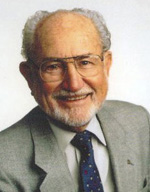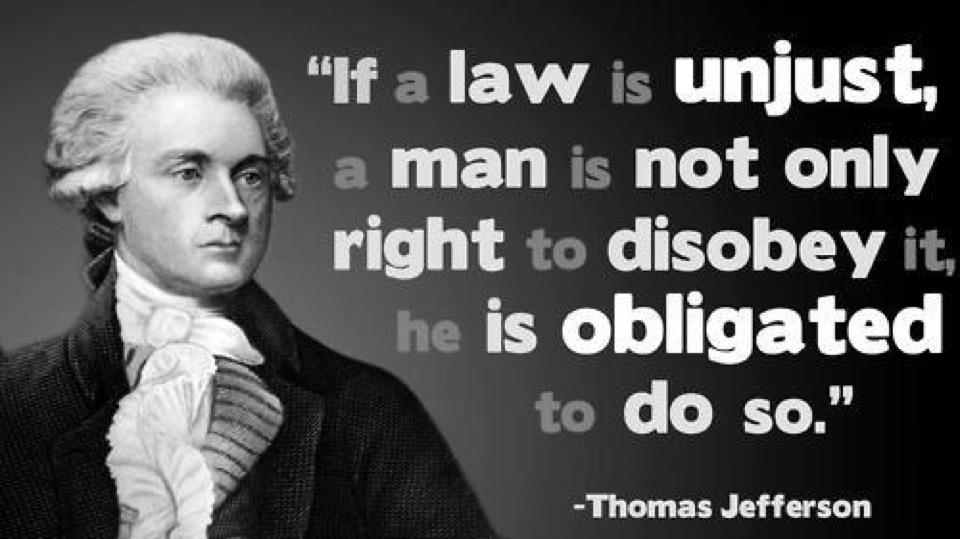“The
once-honorable profession of law now fully functions as a bottom-line
business, driven by greed and the pursuit of power and wealth, even
shaping the laws of the United States outside the elected Congress and
state legislatures.”
-- Justice John F. Molloy
The Fraternity: Lawyers and Judges in Collusion
JUSTICE JOHN F. MOLLOY
 W
When I began practicing law in 1946,
justice was much simpler. I joined a small Tucson practice at a salary
of $250 a month, excellent compensation for a beginning lawyer. There
was no paralegal staff or expensive artwork on the walls.
In those days, the judicial system was straightforward and efficient.
Decisions were handed down by judges who applied the law as outlined by
the Constitution and state legislatures. Cases went to trial in a month
or two, not years. In the courtroom, the focus was on uncovering and
determining truth and fact.
I charged clients by what I was able to accomplish for them. The
clock did not start ticking the minute they walked through the door.
Looking back
The legal profession has evolved dramatically during my 87 years. I
am a second-generation lawyer from an Irish immigrant family that
settled in Yuma. My father, who passed the Bar with a fifth-grade
education, ended up arguing a case before the U.S. Supreme Court during
his career.
The law changed dramatically during my years in the profession. For
example, when I accepted my first appointment as a Pima County judge in
1957, I saw that lawyers expected me to act more as a referee than a
judge. The county court I presided over resembled a gladiator arena,
with dueling lawyers jockeying for points and one-upping each other with
calculated and ingenuous briefs
That was just the beginning.
By the time I ended my 50-year career as a trial attorney, judge and
president of southern Arizona's largest law firm, I no longer had
confidence in the legal fraternity I had participated in and, yes,
profited from.
I was the ultimate insider, but as I looked back, I felt I had to
write a book about serious issues in the legal profession and the
implications for clients and society as a whole.
The Fraternity: Lawyers and Judges in Collusion was 10 years in the making and has become my call to action for legal reform.
Disturbing evolution
Our Constitution intended that only elected lawmakers be permitted to create law.
Yet judges create their own law in the judicial system based on their
own opinions and rulings. It's called case law, and it is churned out
daily through the rulings of judges. When a judge hands down a ruling
and that ruling survives appeal with the next tier of judges, it then
becomes case law, or legal precedent. This now happens so consistently
that we've become more subject to the case rulings of judges rather than
to laws made by the lawmaking bodies outlined in our Constitution.
This case-law system is a constitutional nightmare because it
continuously modifies constitutional intent. For lawyers, however, it
creates endless business opportunities. That's because case law is
technically complicated and requires a lawyer's expertise to guide and
move you through the system. The judicial system may begin with enacted
laws, but the variations that result from a judge's application of case
law all too often change the ultimate meaning.
Lawyer domination
When a lawyer puts on a robe and takes the bench, he or she is called
a judge. But in reality, when judges look down from the bench they are
lawyers looking upon fellow members of their fraternity. In any other
area of the free-enterprise system, this would be seen as a conflict of
interest.
When a lawyer takes an oath as a judge, it merely enhances the ruling
class of lawyers and judges. First of all, in Maricopa and Pima
counties, judges are not elected but nominated by committees of lawyers,
along with concerned citizens. How can they be expected not to be
beholden to those who elevated them to the bench?
When they leave the bench, many return to large and successful law firms that leverage their names and relationships.
Business of law
The concept of "time" has been converted into enormous revenue for
lawyers. The profession has adopted elaborate systems where clients are
billed for a lawyer's time in six-minute increments. The paralegal
profession is another brainchild of the fraternity, created as an
additional tracking and revenue center. High powered firms have
departmentalized their services into separate profit centers for probate
and trusts, trial, commercial, and so forth.
The once-honorable profession of law now fully functions as a
bottom-line business, driven by greed and the pursuit of power and
wealth, even shaping the laws of the United States outside the elected
Congress and state legislatures.
Bureaucratic design
Today the skill and gamesmanship of lawyers, not the truth, often
determine the outcome of a case. And we lawyers love it. All the tools
are there to obscure and confound. The system's process of discovery and
the exclusionary rule often work to keep vital information off-limits
to jurors and make cases so convoluted and complex that only lawyers and
judges understand them.
The net effect has been to increase our need for lawyers, create more
work for them, clog the courts and ensure that most cases never go to
trial and are, instead, plea-bargained and compromised. All the while
the clock is ticking, and the monster is being fed.
The sullying of American law has resulted in a fountain of money for
law professionals while the common people, who are increasingly affected
by lawyer-driven changes and an expensive, self-serving bureaucracy,
are left confused and ill-served.
Today, it is estimated that 70 percent of low-to-middle-income
citizens can no longer afford the cost of justice in America. What would
our Founding Fathers think?
This devolution of lawmaking by the judiciary has been subtle, taking
place incrementally over decades. But today, it's engrained in our
legal system, and few even question it. But the result is clear.
Individuals can no longer participate in the legal system.
It has become too complex and too expensive, all the while feeding our dependency on lawyers.
By complicating the law, lawyers have achieved the ultimate job
security. Gone are the days when American courts functioned to serve
justice simply and swiftly.
It is estimated that 95 million legal actions now pass through the
courts annually, and the time and expense for a plaintiff or defendant
in our legal system can be absolutely overwhelming.
Surely it's time to question what has happened to our justice system
and to wonder if it is possible to return to a system that truly does
protect us from wrongs.
A lawyer from Tuscon, Arizona, John Fitzgerald Molloy (b. 1917) was
elected to the Superior Court bench where he served for seven years as
both a juvenile court and trial bench judge. He subsequently was
elected to the Court of Appeals where he authored over 300 appellate
opinions, including the final Miranda decision for the Arizona Supreme
Court. During that period, he also served as president of the Arizona
Judge's Association. After 12 years, Molloy returned to private
practice to become president of the largest law firm in southern
Arizona. His book has received widespread praise for its candor and
disquieting truths. (Photo courtesy of Paragon House)
|
Copyright 2004, Paragon House
From an Internet released preview of the book by John Fitzgerald Molloy, The Fraternity: Lawyers and Judges in Collusion, Paragon House, St. Paul, Minnesota, 2004. Reprinted in accordance with the "fair use" provision of Title 17 U.S.C. § 107 for a non-profit educational purpose.
Source:
Tulane Link
 When I began practicing law in 1946,
justice was much simpler. I joined a small Tucson practice at a salary
of $250 a month, excellent compensation for a beginning lawyer. There
was no paralegal staff or expensive artwork on the walls.
When I began practicing law in 1946,
justice was much simpler. I joined a small Tucson practice at a salary
of $250 a month, excellent compensation for a beginning lawyer. There
was no paralegal staff or expensive artwork on the walls.